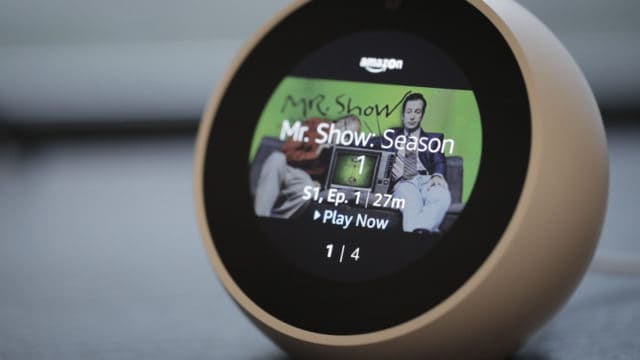
You’ve probably heard of Amazon’s cloud-based voice service, Alexa. The product allows you to use voice commands to perform internet searches and online purchases (among other functions), and even can be hooked up to your house to control lights or other electronics.
The Alexa service is available on many devices, including Amazon’s own flagship products. One such product, released earlier this year, is the Echo Show. Marketed as an Alexa-driven home hub, it includes a seven-inch screen for displaying whatever the user asks for — including videos, information, and pictures.
Another product, the Echo Spot, has similar functions but a much smaller screen. With devices like the Show and Echo, one can’t help but feel that they would be perfect for viewing videos on streaming services like YouTube.
However, Google has recently pulled support for YouTube from Echo devices. This is part of an ongoing feud between Google and Amazon. The online retailer refused to sell Google products until recently (e.g. Chromecast and Google Home), so Google decided to strike back. In addition to removing support for Echo, the current situation also will result in YouTube being removed from Amazon’s Fire TV by January 1st, 2018.
Amazon’s Response
Amazon escalated the conflict earlier this week by applying for the trademark “AmazonTube”. The name and the descriptions of the new trademark suggest that Amazon may be planning a YouTube competitor to fill the sizable gap in content currently offered on the Echo line of products.
The Internet supergiant also filed for a trademark on the name “OpenTube”, as well as registering several domain names (AlexaOpenTube.com, AmazonAlexaTube.com and AmazonOpenTube.com). These moves do not necessarily suggest that Amazon will launch a YouTube competitor, but they provide solid credence to the idea.
If Amazon goes through with this plan, and launches an open content-based video community like YouTube, the company will leave itself open to infringement lawsuits from Google. The similarity of the names and descriptions of the services will undoubtedly lead the courts to decide in Google’s favor, as this is a clear commercial use of their intellectual property.
Peace Talks
The feud may soon be coming to an end. Google and Amazon announced on December 14th that they plan to discuss a solution for the problem that will be to the benefit of each company and their mutual customers. While the proposed meeting will only deal with Fire TV, we can hope that services will be restored to Echo line of products as well.
Amazon has resumed selling the Chromecast and other Google products. Hopefully the search engine supergiant will respond in kind, returning YouTube access to owners of Amazon devices.
Relationship to Net Neutrality
One must question how this situation relates to net neutrality, particularly since both Google and Amazon have a stake in the cable game. Amazon is considering partnerships with cable companies. Plus, Google already has their own telecommunications service called Google Fiber.
If peace talks between the two companies fall through, we could see a situation in which the new rules on net neutrality will deepen the gulf between the two companies. For example, Google may decide to zero-rate YouTube service (meaning that data used on YouTube does not count towards a user’s cap), while simultaneously relegating the proposed AmazonTube to an Internet slow lane.
Amazon could respond in kind, cutting deals with cable providers allowing zero-rating of Amazon’s services while slowing down YouTube transmission. This could greatly affect either company’s base of customers — and will largely determine which service will be used depending on which cable provider is available to the end-user.
Due to the recent revocation of Title II regulations on ISPs, feuds like this should be followed closely by the general public. With corporations regaining control over the content offered on the Internet, end-users could be effectively cordoned into using the ISPs product of choice.
As more and more partnerships form between Internet giants and cable companies, we could see a strict separation of services based on one’s ISP choice. In a country where most Americans only can choose between two or three cable providers maximum, we could see giant profits raised by these corporations at the expense of end-user experience.
Will Amazon go through with their plan, releasing a new competitor to the world’s biggest video-sharing website? Or will these peace talks go through, restoring Google services to Amazon products? Only time will tell.
 Follow Us
Follow Us





